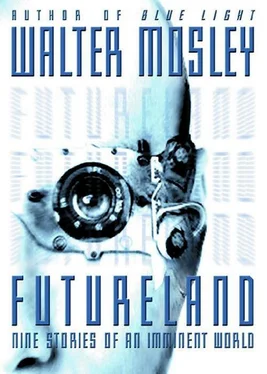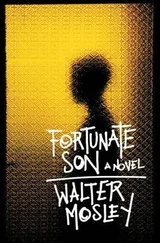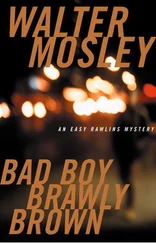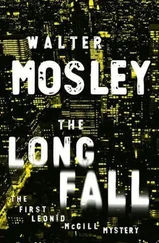“Yuh.”
“I have to say that, Harold. It’s the rules.”
“I know.”
“How long do you want me?”
“As long as I can get.”
“How much money do you have?”
“Three thousand, I think.”
“How much to spend?”
“All of it,” he whispered.
She began stroking his erection in a loose grip. The rest of Harold’s body stiffened.
Yasmine was looking him in the eye.
“Tell me before you come,” she said. She seemed to be studying something that was going on in his head.
He felt his legs buckle. Yasmine supported his buttocks with her free hand.
“Don’t fall. Put all your mind into your cock. Try to come but tell me before you do.”
“I... I... now... now,” Harold rasped.
Yasmine reached down to the altar in a deft motion and brought a brass bowl under his nose. Instantly his diaphragm went into spasm and the feeling of orgasm subsided.
“How’s your heart?” she asked.
“Okay, I think.”
“Because I’m going to do things to you that would kill that old man in the grand hall. Bust his heart open like a rotten peach.”
Harold blinked and almost lost consciousness.
“No sleeping, no sitting,” she said. She held another bowl under his nose and started the gentle stroking again. “I will bring you up to the edge twenty times or more if I want. And every time you have to tell me and every time I’ll pull you back. Okay?”
“What if I said no?”
Yasmine wagged her head slowly from side to side. She smiled and he wondered if his heart was strong enough to last the night.
“... three men — captured after apparently trying to contaminate a children’s immunization center in Rockland, Oregon — have all committed suicide while in custody of the Rockland police.” The newsman, Letter Phillips, wore a lavender T-shirt. His hair was brown and thick. He sat forward on his tall stool and spoke seriously, without personal appeal. This switch from his usual wisecracking manner was effected to tell the audience that this was real news. “Our correspondent in Oregon, Couchy Malone, has more.”
A beautiful waif with surgically enhanced eyes appeared in the curve. Her skirt was short and her thin legs seemed unsteady.
“Thank you, New York,” said the freckled child, striped flu marks on her arms. “Police sources have informed this reporter that a map of some sort was found among the possessions of one of the prisoners. This map identifies immunization centers around the Midwest, Oregon, Washington, and Alaska. Each center’s location has been circled in red and some of these had been marked with a black check sign.” Couchy disappeared and a red circle marked with a black check, floating in space, replaced her.
“Was the Rockland site checked, Couchy?” Letter’s voice inquired.
“That’s the problem, New York,” the child said as she reappeared. “It was not checked. The police and the FBI fear that the checked centers may have already been contaminated. These centers work all through the school year. Thousands of children are immunized each day.” The strain of fear, real fear, came into Couchy Malone’s voice.
Harold put down his shrimp and noodle cup to concentrate on the news report.
“This could be the tip of the iceberg, New York,” the young ITL freelancer said. “It could be a very real act of monstrous terrorism.”
“Can you tell us which immunization sites, centers, have been marked with the black check?” Letter asked quickly, as if he were trying to drown out her fears.
“No. No, New York. My sources wouldn’t or couldn’t identify the marked centers.”
“Thank you very much, Couchy,” Letter Phillips said.
Couchy Malone looked as if she wanted to say something else, but her image faded as Letter Phillips returned to the curve. Harold wondered if she wanted to call out some kind of warning to her family or loved ones.
“In another disease-related story, seven cases of Jeffers’s Disease have been reported in and around the Denver area. Named after the doctor who identified it, this new syndrome speeds up the body’s metabolism, depleting certain essential elements for blood and skin maintenance. We have Dr. Jeffers on satellite hookup to talk to us about this new disturbing disease.”
Above the anchorman’s head appeared a patch in which was the head of a man with a thin face and large ears. In childhood he was probably cute.
“Are you with us, Dr. Jeffers?”
“Yes, Letter.”
“Seven cases of this terrible illness,” Letter said. “How many have been fatal?”
“All of them.”
“How long did they suffer?”
“Three days, at least. No one lived out the week.” Dr. Jeffers looked as if he had been frightened and now he was numb.
“What is the cause of this disease, Doctor?”
There was a pause then. Maybe the audio line had gone down and the doctor was simply waiting to hear. But Harold believed that Jeffers was considering his answer. He was wondering what to say.
“We believe that there is an environmental cause to the illness, Letter. As we speak federal agencies are trying to discover some link between the victims — where they worked, what they ate, where they went swimming. It’s something like that.”
“So you don’t believe that this could have anything to do with the potential act of terrorism in the Northwest.”
“I can’t see any connection whatsoever,” Jeffers said. “The immunization centers are for children only, and none of the victims down here have been immunized in over a year.”
“That’s a relief,” Letter said with a big smile.
Jeffers didn’t seem relieved. His image faded.
“On the lighter side...” Phillips began.
“Vid off,” Harold said.
He sat back in his new Propper Chair, a thin sheet of transparent and flexible Synthsteel held aloft by pulsating magnetic waves emanating from a disc anchored to the floor. Like floating on air, the holo-ads claimed. And it was true, but the feeling was only physical. There was nothing light or buoyant about Harold’s life. And this was strange, because he was in love. Yasmine Mü was the center of his life. It was true that he only saw her at the Blanklands Eros-Haus; that he had to pay for her attentions. But she never charged him the full rate and once a week she’d allow him to spend the whole night in her cubicle.
Harold’s heart and body were Yasmine’s to command. But there was a downside to love. The IT curve, the Propper Chair, and all the other little perks of the working life had lost their sheen. He felt small and vulnerable.
Lately Harold had been thinking about his parents, Clarence and Renata Bottoms. By the age of forty they had both faded into White Noise. He hadn’t heard from either one in years. He supposed that they were migrants living in what was known as the undertow, the currents of illegal labor under the cycles of unemployment. These migrants moved from city to city, living in Common Ground.
They were gone.
Harold had been recalling the last conversation he’d had with his father. They’d met at a China Tea stand on One forty-first and Lenox. Harold paid for the drinks.
“Thanks, son,” the elder Bottoms said. He was five eight but seemed shorter because he stooped a little. “Your mama and I had to give up the apartment. I think she goin’ down to Florida. I’ma make it out to St. Louis. Maybe your brother got a hoe in the garden for me.”
He never asked to stay with Harold. There were stiff penalties for stacking up in a rental. Either you made your own rent or you stayed in Common Ground. If you were found sheltering someone unemployed you were evicted, fired, and thrown into a double unemployment cycle.
Читать дальше












